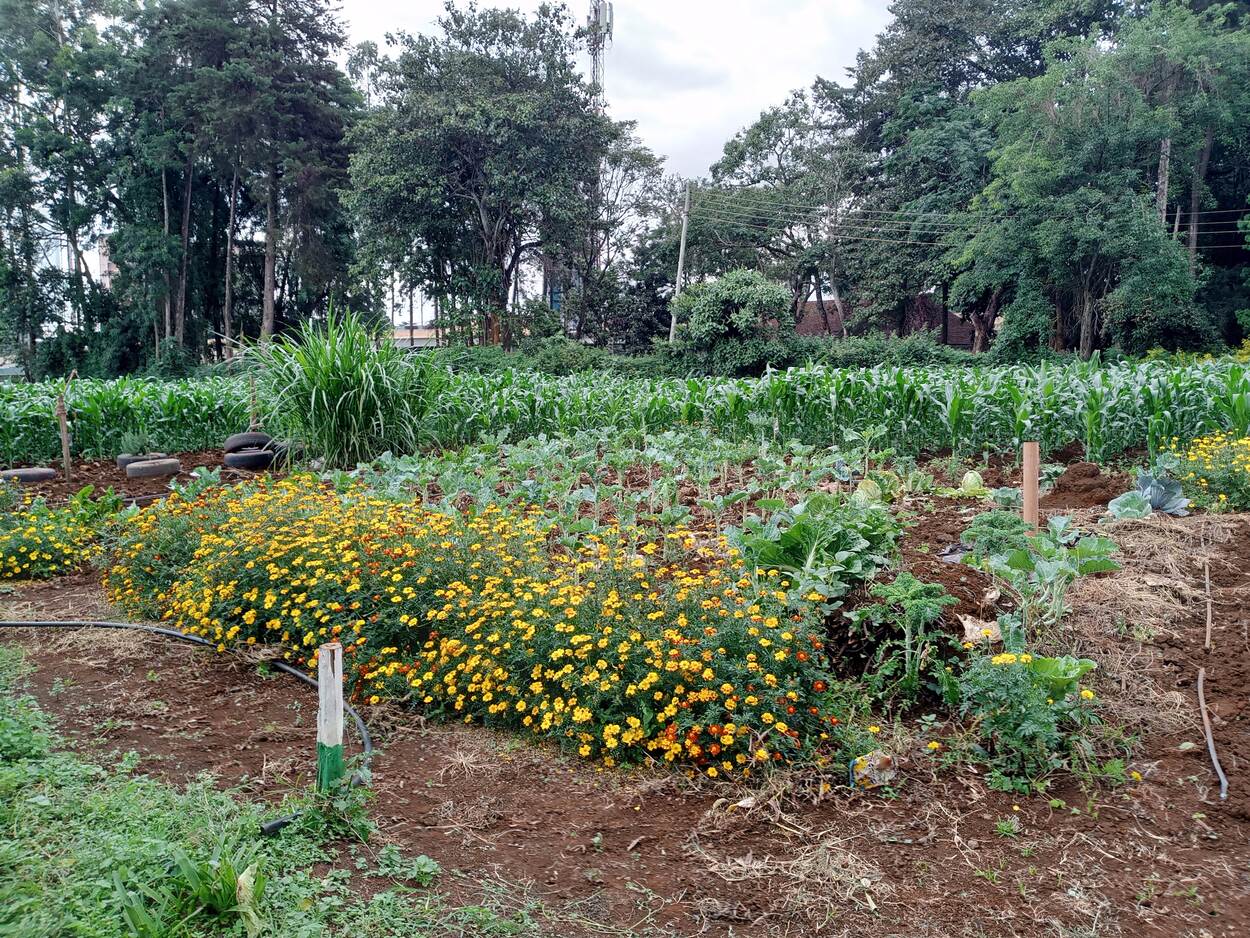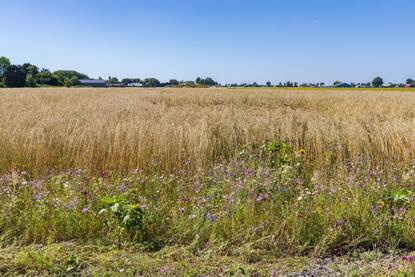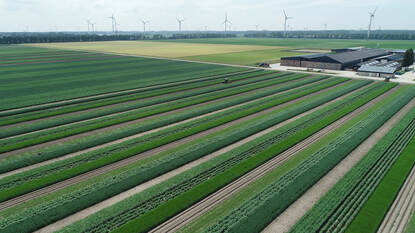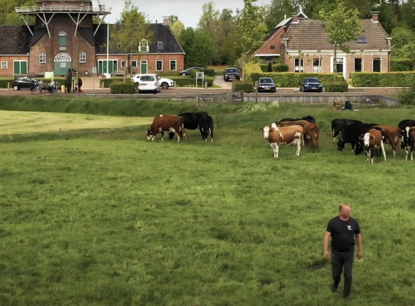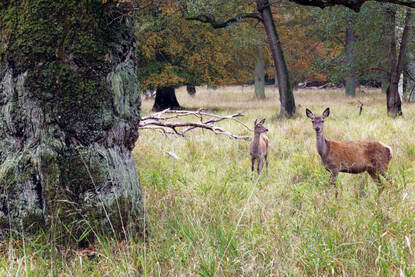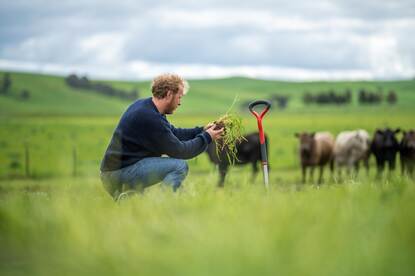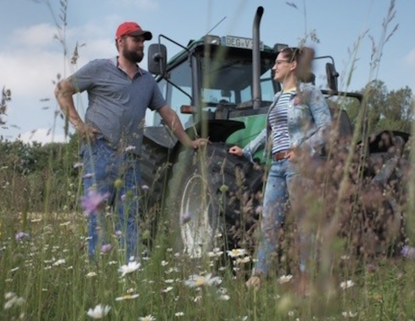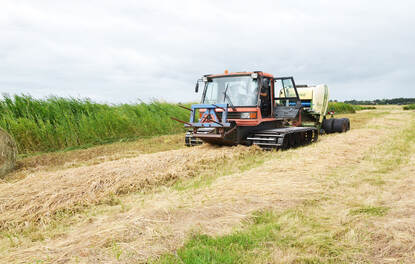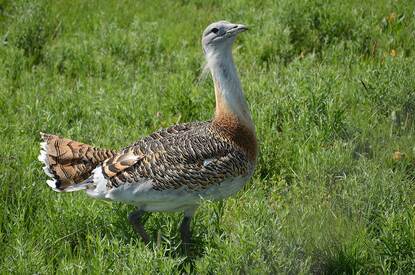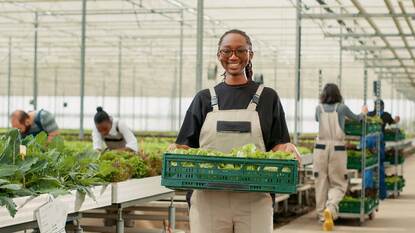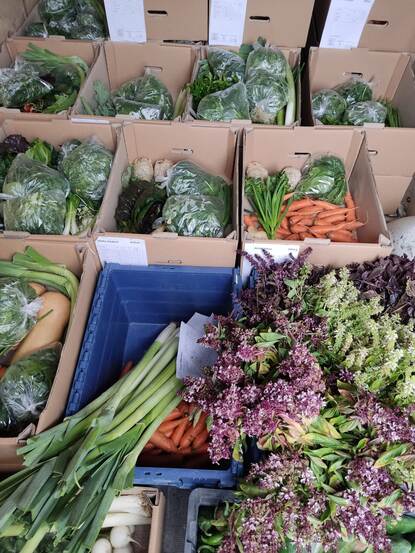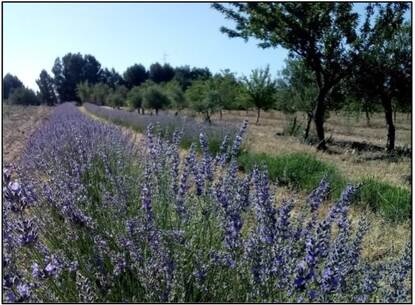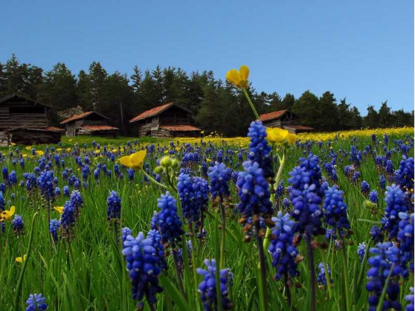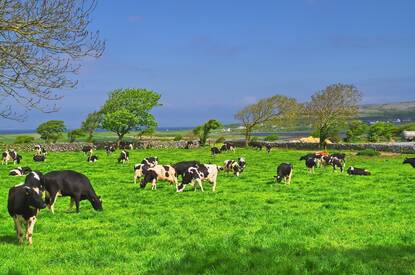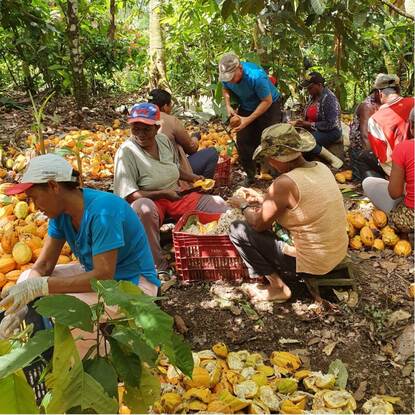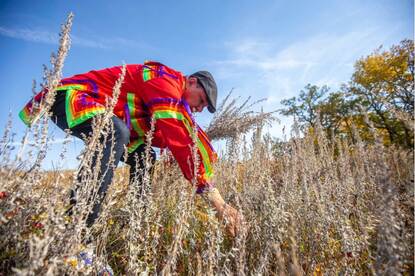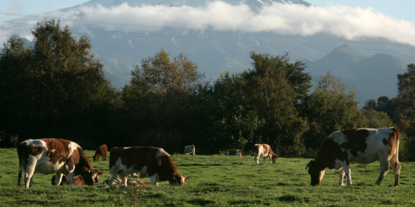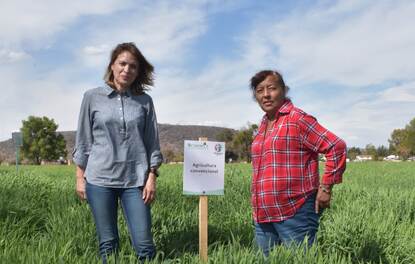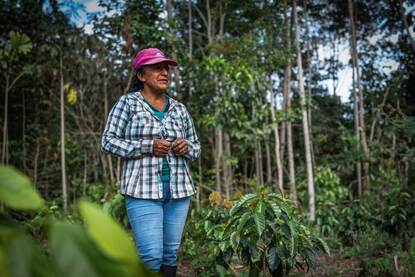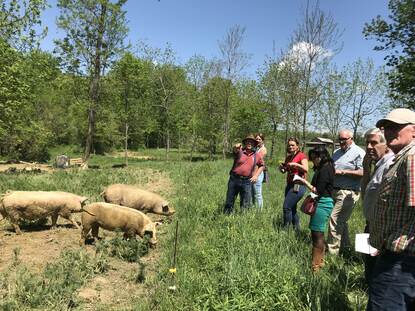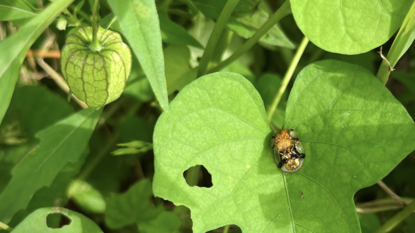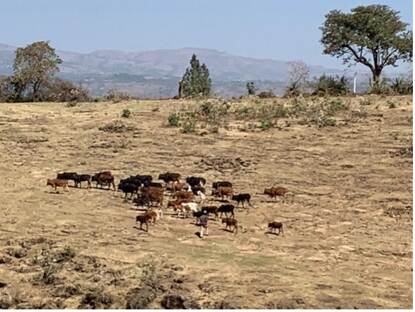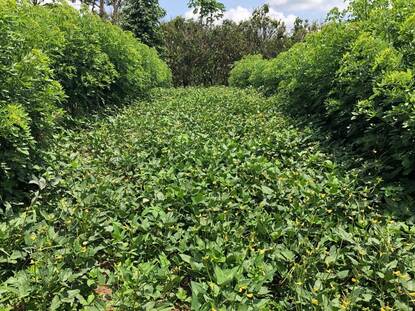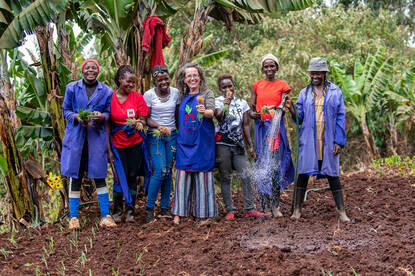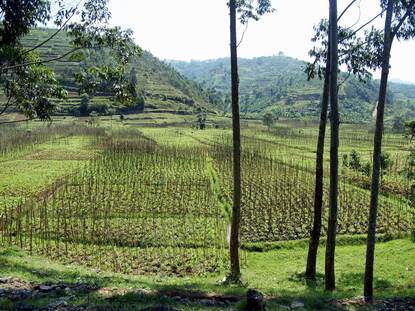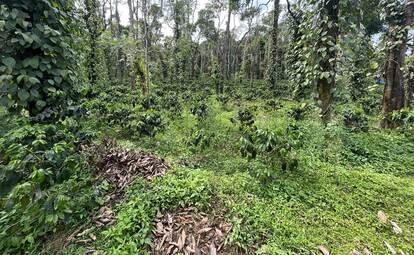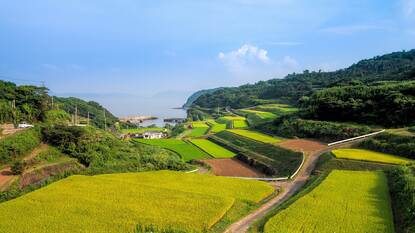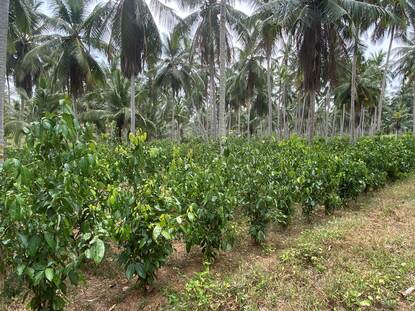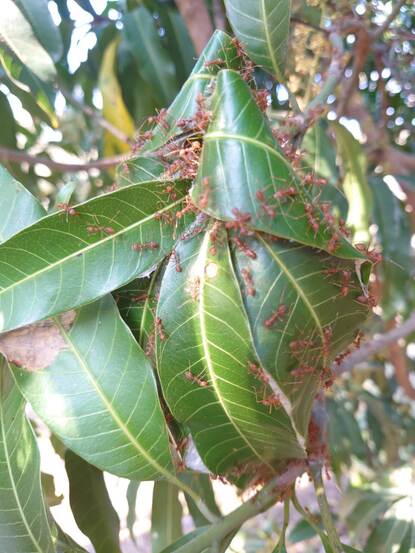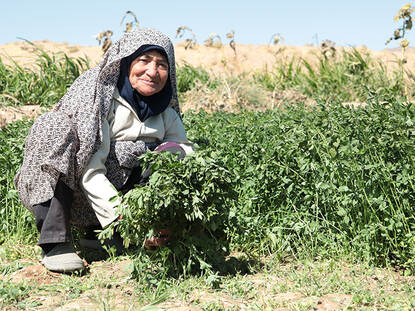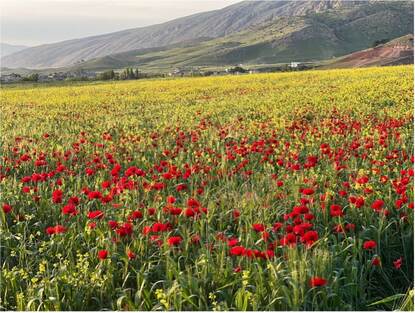Nature-inclusive agriculture holds the potential to revolutionize farming practices in Nigeria. However, the overall progress is slow, as there are multiple factors holding back its implementation. The lack of a sustainable business models for farmers, for example, or the current state of public awareness are serious hinderances.
In rural Nigeria, many local farmers inherently incorporate practices that protect and promote environmental and nature properties. These practices include bush-fallowing, mixed cropping, hedgerow establishment, enhancement of natural enemies, mulching, and cultivation of locally adaptable varieties. While these practices encourage biodiversity, it is important to note that they are often carried out without a comprehensive understanding or implementation of the three pillars of sustainable development: environmental, social, and economic.
Intentional practices by organic-inclined farmers
Some farmers who embrace organic farming principles intentionally adopt practices that align with nature conservation. These practices encompass:
- water management techniques such as water harvesting, increasing water infiltration in the soil, water storage, and the use of drip irrigation systems;
- crop planning and management strategies that involve crop rotation, intercropping, cover crops, crop-animal associations, and the design of diverse cropping systems;
- nutrient management practices including composting, green manure, animal manure, microbial fertilizers, and the utilization of naturally existing mineral fertilizers;
- soil management such as minimal soil disturbance and soil bio-diversity enrichment;
- plant and seed propagation management such as seed conservation, consideration for seeds evaluation, characterization and multiplication.
Although these farmers are often well-educated, their practices are not always certified to international organic farming standards.
Intentional practices by conventional farmers
Some conventional farmers recognize the importance of nature-inclusive practices and incorporate limited measures such as the use of drip irrigation, bio-fertilizers, bio-pesticides, and the promotion of hedgerows in rural and suburban locations. However, the use of synthetic fertilizers and pesticides in their operations undermines their efforts to fully embrace nature-inclusive agricultural practices.
‘The concept of nature-inclusive agriculture is primarily known to educated farmers’
Challenges and constraints
The challenges and constraints vary among different categories of farmers. Local farmers who practice default nature-inclusive methods face challenges such as land loss and encroachment due to commercial activities. Additionally, the aging population of local farmers poses a threat to the continuity of these practices, as the knowledge and skills may soon diminish without external capacity building support.
For intentional organic farmers, constraints include the unavailability and lack of knowledge regarding local resources needed for soil and pest management. Rising costs of imported resources like bio-pesticides, decreasing access to premium land with available resources, and mounting security concerns in rural communities also pose challenges. Furthermore, the effectiveness of some bio-pesticides in managing pests is compromised by resistant build-up. Economic sustainability is another challenge, as organic farming may not always offer a relative yield advantage compared to conventional farming, resulting in higher prices for their produce in the market. And consumer are not always willing to pay these higher prices.
Conventional farmers face constraints, such as the rising cost of drip irrigation, market infiltration of substandard inputs and equipment, and the need to balance nature-inclusive practices with traditional farming methods.
The role of farmers and other stakeholders
Farmers play a fundamental role in promoting nature conservation and sustainability within the context of the UN sustainability charter: social and economic sustainability. However, economic factors often hinder them from fully embracing nature-inclusive agriculture, as they face stiff competition from commercially-oriented farming practices that prioritize mass production over environmental conservation.
Other stakeholders, including NGOs, private entities, and the government, have an important role to play in supporting and promoting agricultural production that contributes to nature conservation and sustainability. They can provide support through capacity building initiatives, tax relief programs, and easier access to funding as well as affordable and high-quality inputs, labeling and packaging support for produce, and creating consumer awareness about the importance of sustainably produced food.
Voluntary associations of organic and nature farmers can also play a significant role by uniting and collectively seeking accreditation to regional and international organic farming standards, such as the International Federation of Organic Agriculture Movements (IFOAM) and Organic Trade Association (OTA).
Facilitating the transition
The transition towards nature-inclusive agriculture in Nigeria is still in an early stage. External support and the creation of an enabling environment by the government are currently lacking. Private entities, such as the Association of Organic Agriculture Practitioners of Nigeria (NOAN) and other umbrella bodies, are making efforts to increase their numbers of active followers. However, the overall progress is relatively slow, and there is a lack of capacity and funding to establish a unified front, officially align with IFOAM standards, and develop a national certification scheme that grants easy access to international markets and national recognition for members.
Public understanding and benefits for the farmers
There is a noticeable knowledge gap among the public in understanding nature-inclusive agriculture. Many people perceive it as a rural farming method that may not be competitive in terms of yield. The competition for land, which is a fundamental resource for nature-inclusive farming, also puts it at a disadvantage.
Nature-inclusive agriculture offers both short-term and long-term benefits. In the short term, it enables the production of healthy and safe food, provides access to broader regional and international markets, and the explimits the exposure of farm workers and consumers to perilous chemicals. In the long term, it improves soil health and biodiversity, reduces carbon footprints, and lowers production costs, ensuring long-term profitability.
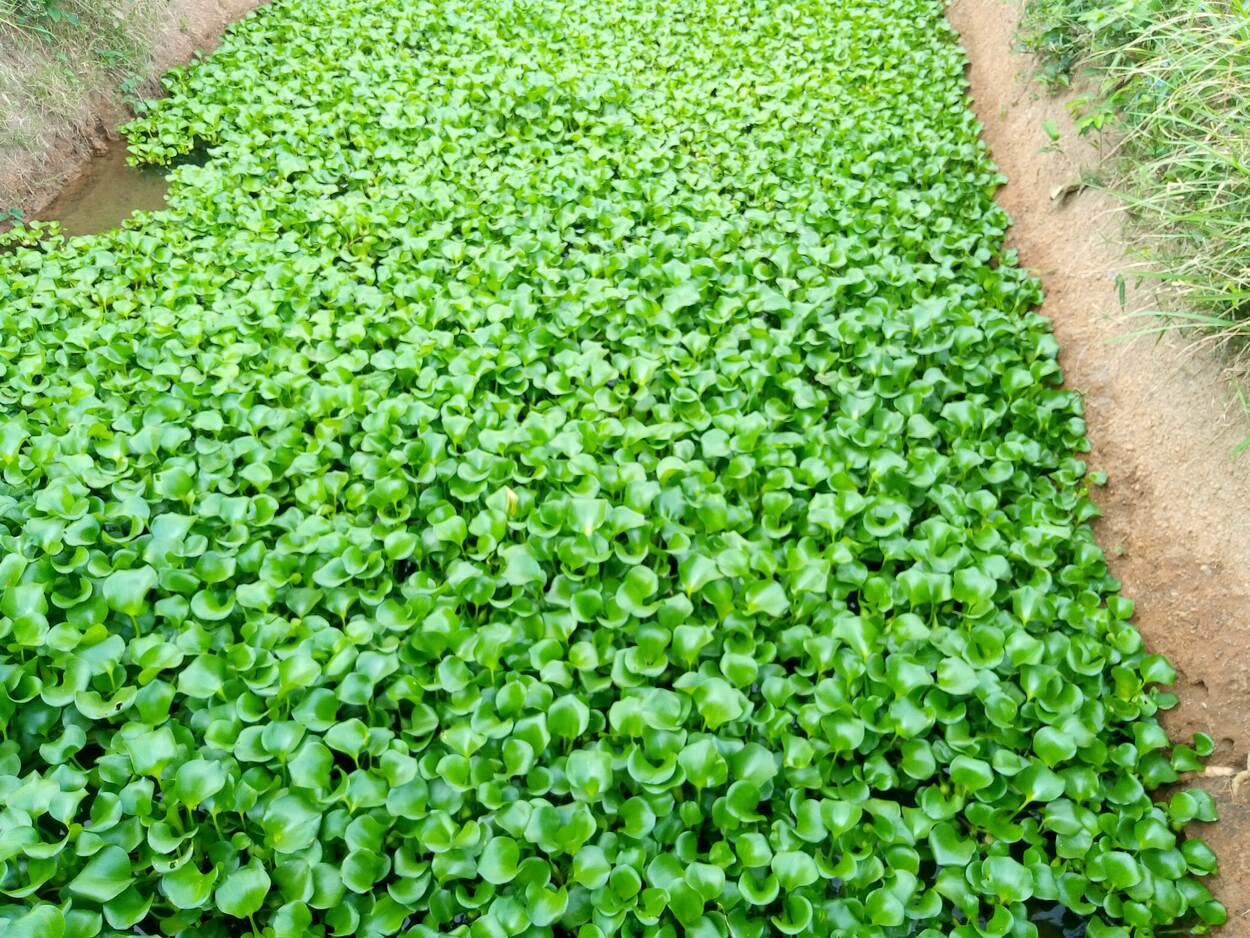
Limiting factors in applying nature inclusive farming
The concept of nature-inclusive agriculture is primarily known to educated farmers, but the adoption rate is still relatively low. Economic considerations often take precedence over environmental and social sustainability in the minds of farmers. In short, the following factors contribute to the limited progress of nature-inclusive agriculture in Nigeria:
- Economic situation: farmers farm for profit mostly and have little regards for biodiversity and sustainability;
- Lack of long-term vision among farmers: they are not bothered about the implication of their present actions and do not consider that the indiscriminate use of synthetic inputs is destroying nature;
- Lack of proper awareness: external information creation and support from private organizations are still very limited and where available, it does not reach the right people.
- Lack of incentive: encouragement from the government and others is grossly non-existent;
- Lack of clear cut benefits: farmers do not see any comparative (financial) benefits;
- Absence of exclusive agro-ecological parks;
- Lack of official labeling and market segregation for produce from nature-inclusive agriculture.
Creating awareness and providing support
Nature-inclusive agriculture holds immense potential for promoting sustainable farming practices and conserving Nigeria's natural resources. While challenges and constraints exist, collective efforts from farmers, NGOs, private entities, and the government can drive the transition towards nature-inclusive agriculture.
By creating awareness, providing support and establishing conducive policies, Nigeria can reap the benefits of nature-inclusive agriculture for a greener, more sustainable future.
Contact
Would you like to know more about the current developments in the domain of agriculture and nature in Nigeria or contact the agricultural team at the Netherlands Consulate-General in Lagos? You can visit the country page of Nigeria at the website agroberichtenlandbuitenland.nl of the Netherlands ministry of Agriculture, Nature and Food Quality. You can also send an email to: LAG-lnv@minbuza.nl
